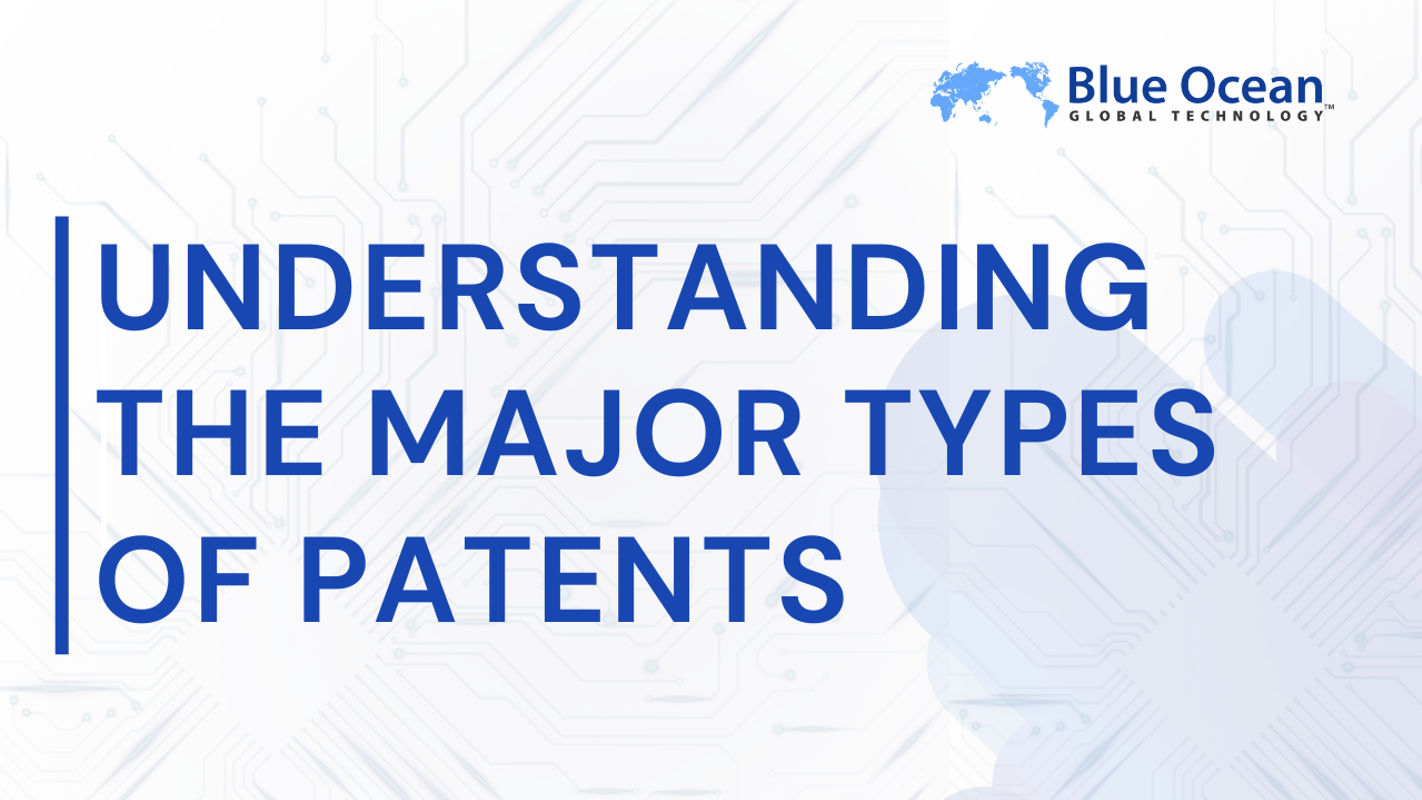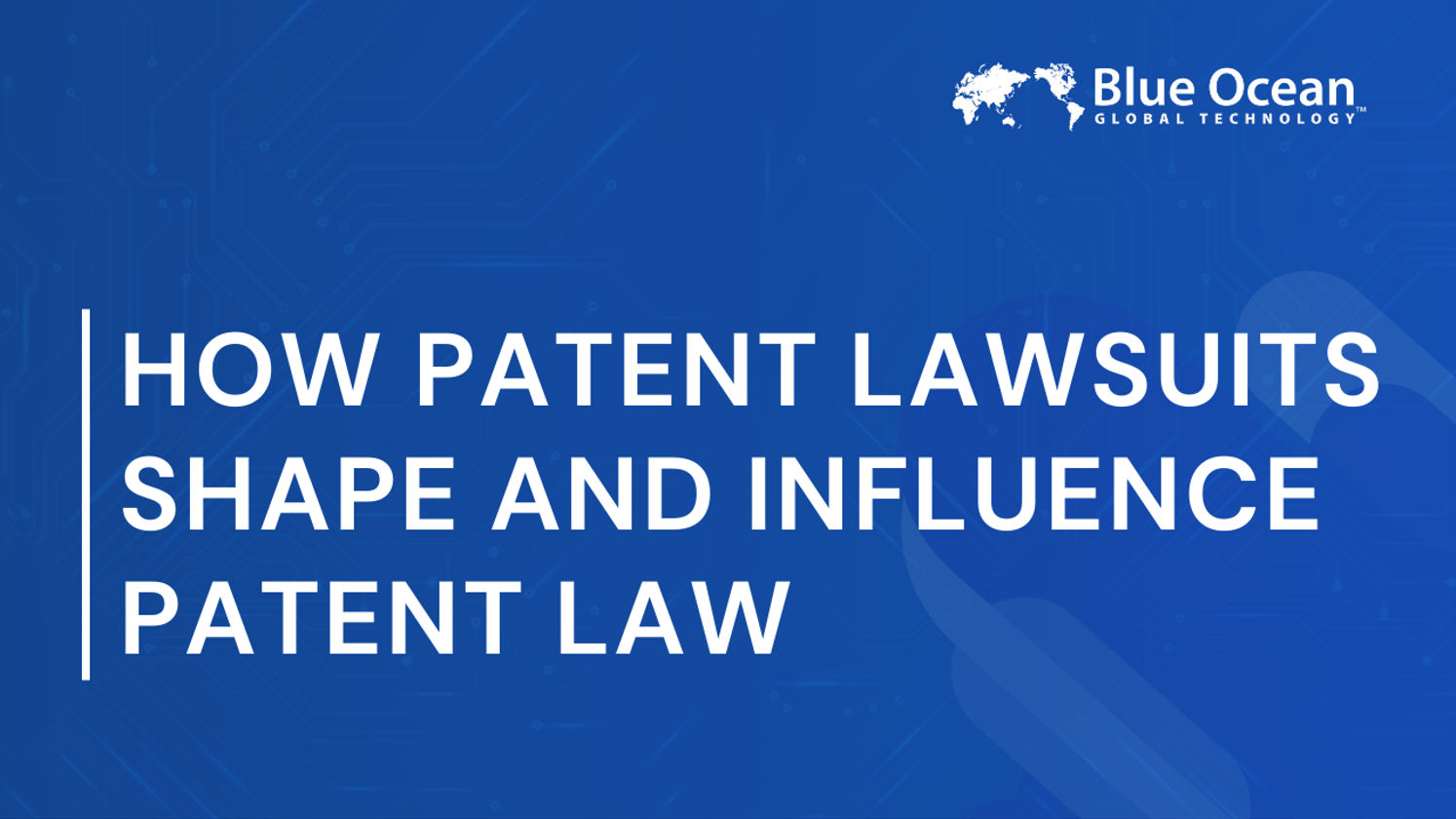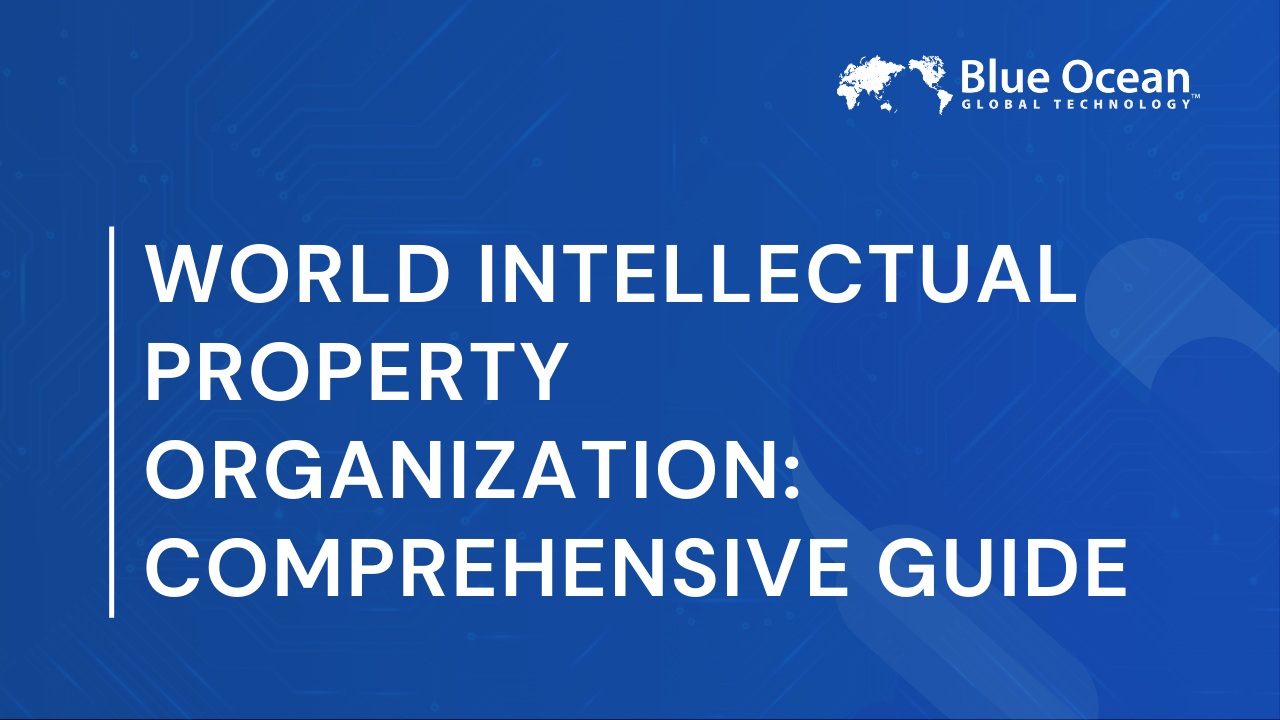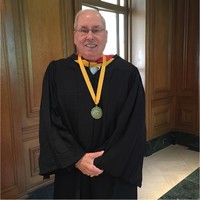
Intellectual Property Expert Witness: A Comprehensive Guide
Intellectual property disputes tend to be complex. They warrant high levels of technical knowledge related to a specific niche or industry. In order to shed light on complex cases, courts leverage intellectual property expert witnesses. These are individuals who provide critical analysis, insights, and testimony. Under the Federal Rules of Evidence, specifically Rule 702, an expert witness should have specialized knowledge, skill, or experience that will assist the court in understanding evidence and critical facts. They play an important role in legal proceedings assisting attorneys, judges, and juries in understanding complex IP issues. This article explores what an intellectual property expert witness is, their role in litigation, the different types of IP experts, the common disputes they handle, their key responsibilities, and the essential factors to consider when choosing the right expert for a case.
Blue Ocean Global Technology offers expert witness services. We are experts in intellectual property disputes, digital forensics, and online litigation support. Our CEO, Sameer Somal, has been recognized by Am Law 100 firms as an expert witness. He provides detailed expert reports and testimony in cases involving copyright infringement, trademark disputes, patent litigation, and trade secret misappropriation. We offer thorough analysis and credible insights into complex IP-related legal challenges.
What is an Intellectual Property Expert Witness?
An intellectual property expert witness is a qualified professional who provides specialized knowledge and testimony in legal intellectual property rights cases. They assist courts, attorneys, and businesses in grasping the nuances of intellectual property law. They offer insights into patents, copyrights, trademarks, and trade secrets disputes. Their skills are important when technical analysis, valuation, or infringement evaluation is required to solve conflicts.
Intellectual property expert witnesses belong to varied fields. They might have law, engineering, economics, or business as their background. While some are intellectual property lawyers, and offer legal perspectives on cases, others veer towards financial aspects, acting as IP damages experts. They point out financial damages stemming from misappropriation. Others are employed in intellectual property consulting firms, where they conduct litigation support, market research, and expert reports to build a client’s case. In the wake of intellectual property conflicts, companies and legal counsel depend on these experts to provide unbiased, well-documented opinions that can impact court rulings.
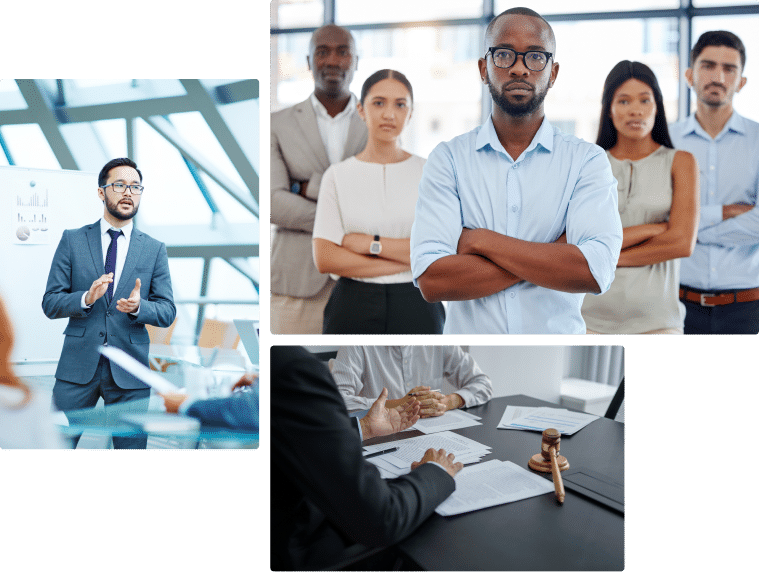
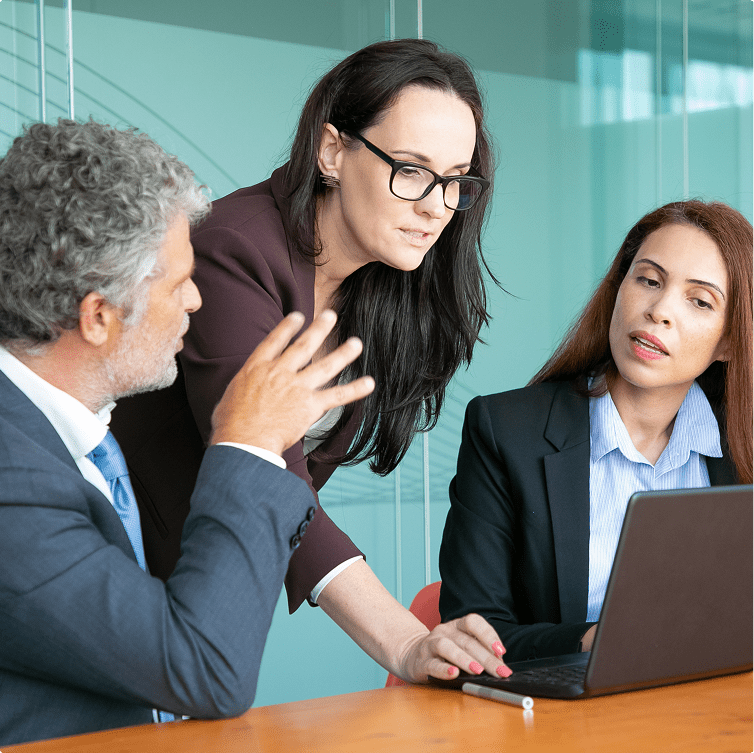
What is the Role and Importance of Intellectual Property Expert Witness in Legal Disputes
In intellectual property cases, expert testimony can be the tipping point in complicated cases. An intellectual property expert witness bridges the technical concept and legal argument gap. Their function involves reviewing evidence, determining damages, and providing objective testimony. This is how they assist attorneys, judges, and juries in handling complex IP matters.
The credentials of an intellectual property expert witness are essential in establishing their credibility before the court. Their higher degrees in various fields are a given. Some of them have spent years working in intellectual property law firms, prosecuting patents, registering trademarks, or resolving copyright conflicts. Others come from research, technology, or finance backgrounds and are well-qualified to evaluate infringement claims, licensing deals, and IP valuations.
The Federal Rules of Evidence offer certain legal standards that need to be considered when a person is in line to become a valid expert witness. Courts assess their educational background, experience in the industry, previous expert witness work, and published articles to decide whether they are suitable. Most experts also work with intellectual property consultants and litigation support groups, using their expertise to bolster a case.
When to Hire an Intellectual Property Expert Witness
It is important to hire an intellectual property expert witness early in the case, allowing legal teams to build stronger arguments. They can conduct thorough assessments, and develop a strategic approach to litigation. Early involvement of an expert witness ensures a well-prepared and evidence-backed case in patent infringement, disputes over trademarks, and or copyright violations.
By having an intellectual property expert witness on board from the very beginning, legal teams are given a strategic edge, such that technical and financial analysis is aligned with the case’s legal arguments. Their early contribution can avoid costly blunders, enable negotiations, and ultimately fortify the case of an intellectual property lawsuit.
What Are the Types of Intellectual Property Expert Witnesses?
Intellectual property disputes cover a broad range of legal and technical issues, requiring expert witnesses with specialized knowledge in different areas. Depending on the nature of the case, an IP expert witness may focus on patents, trademarks, copyrights, trade secrets, or financial damages related to intellectual property violations. These professionals work closely with IP lawyers and legal teams to provide analysis, reports, and courtroom testimony that support their clients’ claims.
Each type of IP expert witness plays a distinct role in litigation, offering insights that help clarify complex legal and technical matters. A patent expert witness assesses the validity and infringement of patents, while a trademark expert witness evaluates brand confusion and market impact. Similarly, a copyright expert witness analyzes originality and fair use, and a trade secret expert witness examines proprietary information and misappropriation claims. Additionally, an IP damages expert witness focuses on the financial aspects of IP disputes, quantifying economic losses and calculating damages.
In the following sections, we will explore each type of intellectual property consultant in detail, highlighting their expertise and contributions to IP litigation.
Under 35 U.S. Code § 282, patents are presumed valid, and challenging their validity requires strong technical and legal arguments. Courts rely on IP expert witnesses with specialized knowledge in science, engineering, and patent law to clarify patent claims and evaluate infringement.
A patent expert witness is a professional with deep expertise in patent law, technology, and industry practices. They analyze patents to determine validity, infringement, and compliance with legal requirements.
Importance of Patent Expert Witness in Legal Cases
- Helps courts interpret patent claims and technical language.
- Provides objective analysis of prior art and patent validity.
- Assists in calculating damages for patent infringement cases.
- Strengthens arguments in patent prosecution and litigation.
Areas Where Patent Expert Witness Can Help
- Patent infringement disputes – Determining if a product or process violates an existing patent.
- Patent validity challenges – Assessing prior art and novelty claims.
- Patent licensing – Evaluating fair licensing agreements.
- Patent damages assessment – Estimating financial impact of infringement.
Under 15 U.S. Code § 1114, trademark infringement occurs when the unauthorized use of a mark causes consumer confusion. Courts depend on IP expert witnesses to assess brand recognition and the likelihood of confusion.
A trademark expert witness specializes in trademark law, brand identity, and consumer perception. They evaluate whether a trademark has been infringed upon and its market impact.
Importance of Trademark Expert Witness in Legal Cases
- Determines the likelihood of confusion between brands.
- Assesses trademark dilution and brand reputation damage.
- Provides market analysis to measure brand recognition.
- Supports trademark registration disputes in legal proceedings.
Areas Where Trademark Expert Witness Can Help
- Trademark infringement cases – Evaluating brand similarity and consumer confusion.
- False advertising claims – Analyzing misleading branding practices.
- Trademark valuation – Estimating the financial worth of a trademark.
- Trade dress disputes – Assessing product design protection.
Under 17 U.S. Code § 106, copyright holders have exclusive rights to reproduce and distribute their works. IP expert witnesses help courts determine copyright infringement and fair use.
A copyright expert witness is a specialist in literary, artistic, and digital works who evaluates copyright ownership, infringement, and originality.
Importance of Copyright Expert Witness in Legal Cases
- Determines substantial similarity between works.
- Assesses whether the use of copyrighted material qualifies as fair use.
- Provides analysis on digital copyright disputes and software infringement.
- Helps establish financial damages from copyright violations.
Areas Where Copyright Expert Witness Can Help
- Music and film copyright disputes – Assessing plagiarism in creative works.
- Software and digital content – Evaluating source code infringement.
- Publishing and literature – Determining originality in books and articles.
- Fair use cases – Analyzing transformative works and parody defenses.
Under the Defend Trade Secrets Act (DTSA) of 2016, misappropriation of trade secrets can lead to civil liability. Courts rely on IP expert witnesses to evaluate proprietary information and economic impact.
A trade secret expert witness specializes in confidential business information, competitive intelligence, and proprietary technology. They assess whether trade secrets have been stolen or improperly disclosed.
Importance of Trade Secret Expert Witness in Legal Cases
- Determines whether information qualifies as a trade secret under legal standards.
- Evaluates security measures taken to protect proprietary data.
- Assesses economic damages from misappropriation.
- Provides forensic analysis of data theft and corporate espionage.
Areas Where Trade Secret Expert Witness Can Help
- Employee misappropriation cases – Evaluating if former employees misused company secrets.
- Data breach investigations – Assessing stolen proprietary information.
- Corporate espionage claims – Identifying unauthorized competitive intelligence gathering.
- Technology theft cases – Analyzing unauthorized product replication.
Under Federal Rule of Evidence 702, expert witnesses must provide reliable methodologies for assessing economic damages in IP disputes. Courts depend on IP damages experts to quantify financial losses.
An IP damages expert witness specializes in financial analysis, valuation, and economic impact assessments related to intellectual property disputes.
Importance of IP Damages Expert Witness in Legal Cases
- Calculates lost profits and royalty rates in IP infringement cases.
- Assesses market value of intellectual property.
- Provides forensic accounting to determine economic harm.
- Helps courts determine reasonable compensation for IP violations.
Areas Where IP Damages Expert Witness Can Help
- Patent infringement damages – Estimating loss from unauthorized technology use.
- Trademark dilution losses – Assessing brand devaluation.
- Copyright infringement compensation – Calculating revenue loss.
- Trade secret misappropriation damages – Determining financial harm from stolen secrets.
What Are the Common Intellectual Property Disputes?
The most common types of IP disputes include:
- Patent Infringement
- Copyright Infringement
- Trademark Infringement
- Trade Secret Misappropriation
- Licensing Disputes
Intellectual property disputes arise when ownership, usage rights, or economic benefits of creative and innovative assets are contested. These disputes can lead to significant financial and reputational consequences for businesses and individuals. Courts and legal professionals often rely on expert witnesses for intellectual property to provide technical analysis, valuation assessments, and testimony to resolve these conflicts.
Each dispute type has unique legal considerations and requires specialized expertise to assess claims, damages, and compliance with IP laws. The following sections explore these disputes in detail, including their causes, legal framework, and the role of expert witnesses in resolving them.
Patent Infringement
Patent infringement occurs when someone makes, uses, sells, or imports a patented invention without the patent owner’s permission. Courts rely on expert witnesses for intellectual property to interpret patent claims, analyze prior art, and assess damages.
Patent infringement is the unauthorized use of a patented invention, leading to potential legal and financial consequences for the infringer.
Causes of Patent Infringement
- Companies unknowingly develop similar technology.
- Intentional use of a patented product or process.
- Unclear patent boundaries lead to infringement disputes.
- Misunderstanding of patent expiration dates.
How Intellectual Property Expert Witnesses Help With Patent Infringement
- Analyzing the scope and validity of a patent.
- Assessing whether an invention is truly novel.
- Determining if an accused product/process infringes on a patent.
- Estimating financial losses due to infringement.
Copyright Infringement
Copyright infringement occurs when a copyrighted work is reproduced, distributed, performed, or displayed without permission. Courts use intellectual property expert witnesses to analyze substantial similarity, fair use, and financial damages.
Copyright infringement involves the unauthorized use of protected literary, artistic, musical, or digital content.
Causes of Copyright Infringement
- Using copyrighted material without attribution.
- Unauthorized distribution of movies, music, and software.
- Misinterpretation of fair use exemptions.
- Improper reposting of copyrighted content.
How Intellectual Property Expert Witnesses Help With Copyright Infringement
- Identifying substantial copying.
- Assessing if content qualifies for exceptions.
- Tracking unauthorized digital distribution.
- Estimating lost revenue from infringement.
Trademark Infringement
Trademark infringement occurs when unauthorized use of a mark causes consumer confusion about the source of goods or services. IP expert witnesses analyze brand recognition, market impact, and likelihood of confusion.
Trademark infringement involves the unauthorized use of a protected brand name, logo, or slogan, leading to potential brand dilution or customer confusion.
Causes of Trademark Infringement
- Confusion between two similar-looking/sounding brands.
- Unauthorized duplication of branded goods.
- Using a trademark without approval.
- Uncertainty about the legal status of a mark.
How Intellectual Property Expert Witnesses Help With Trademark Infringement
- Assessing if customers confuse two brands.
- Evaluating loss of distinctiveness.
- Providing data on customer association.
- Estimating lost sales due to infringement.
Trade Secret Misappropriation
Under the Defend Trade Secrets Act (DTSA) of 2016, trade secret theft is a federal offense, allowing companies to sue for misappropriation. Courts rely on IP expert witnesses to analyze proprietary data and assess damages.
Trade secret misappropriation involves the unauthorized use, acquisition, or disclosure of confidential business information.
Causes of Trade Secret Misappropriation
- Former employees take confidential information.
- Competitors steal business strategies or formulas.
- Insufficient protection of sensitive information.
- Disclosure of trade secrets during failed business negotiations.
How Intellectual Property Expert Witnesses Help With Trade Secret Misappropriation
- Tracing unauthorized data access.
- Measuring business impact.
- Explaining trade secret protection methods.
- Estimating damages from trade secret theft.
How to Choose the Right Intellectual Property Expert Witness
Selecting the right Expert Witness for Intellectual Property is crucial for building a strong legal case. These professionals provide specialized knowledge in patents, copyrights, trademarks, trade secrets, and IP damages, helping attorneys and courts understand complex technical and financial aspects. The right expert witness can strengthen a legal argument, while an inexperienced or unqualified expert may weaken a case.
When choosing an IP expert witness ensure they have:
- Deep knowledge of intellectual property
- Proven experience in litigation
- Strong communication skills
- Credibility and objectivity
- Ability to conduct a comprehensive analysis
- Familiarity with courtroom procedures and expert witness requirements
- Industry recognition and professional achievements
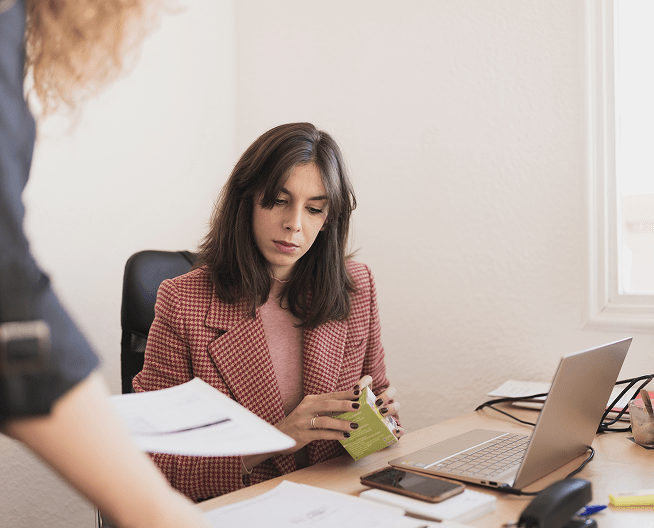
Duties and Responsibilities of an Intellectual Property Expert Witness
An Intellectual Property Expert Witness plays a major role in the litigation process. Their responsibilities extend from pre-trial
analysis to expert testimony, ensuring a strong legal argument.
Case Evaluation and Preliminary Analysis
- Collaborates with attorneys to assess the merits of an IP dispute.
- Reviews patents, trademarks, copyrights, or trade secrets.
- Analyzes prior art and legal precedents to determine case validity.
- Identifies key technical and financial factors affecting litigation.
- Assists in legal strategy by interpreting IP protection laws.
- A Trade Secret Expert Witness may analyze whether confidential information qualifies as a trade secret under the DTSA.
Providing Expert Reports and Opinions
- Drafts comprehensive reports outlining:
- Technical, financial, or legal aspects of the dispute.
- Comparisons between allegedly infringing products and protected IP.
- Assessments of IP damages, including lost profits and royalties.
- Forensic data analysis in trade secret misappropriation cases.
- These reports serve as key evidence in court.
Conducting Forensic Investigations and Market Analysis
- Performs digital forensics to trace IP theft.
- Analyzes trademark disputes through market research.
- Evaluates competitive intelligence to assess business impact.
- Conducts royalty calculations for licensing disputes.
Assisting in Depositions and Interrogatories
- Prepares deposition questions for opposing parties.
- Develop interrogatories to gather relevant IP-related details.
- Rebutts opposing expert witness claims with technical evidence.
Delivering Testimony in Court
- Explain complex IP concepts to judges and juries.
- Defends expert opinions against cross-examination.
- Presents visual aids, models, or charts for clarity.
- Supports legal arguments with fact-based analysis.
- A Trade Secret Expert Witness may testify on misappropriation risks and security measures.
Assessing Financial Damages and Licensing Agreements
- Calculates lost profits from IP infringement.
- Determines reasonable royalty rates for licensing agreements.
- Evaluate the economic impact of IP violations.
- Provides financial models for settlements.
Supporting Settlement Negotiations
- Offers objective analysis to guide negotiations.
- Recommends alternative dispute resolution methods (mediation/arbitration).
- Provides expert opinions on fair IP compensation.
4 Cs of an Intellectual Property Expert Witness
When selecting an Intellectual Property Expert Witness, four key qualities- competence, communication,
credibility, and confidence, are essential for ensuring a strong legal case.
Competence
The expert must have deep knowledge of intellectual property law, industry-specific expertise, and experience handling patent, trademark, copyright, and trade secret disputes.
Communication
Complex IP concepts should be explained clearly to judges, juries, and attorneys, making technical matters easily understandable.
Credibility
A strong professional background, unbiased opinions, and a solid track record in litigation enhance the expert’s reliability in court.
Confidence
The expert must deliver testimony with poise, remain composed under cross-examination, and defend their analysis with well-supported arguments.
Conclusion
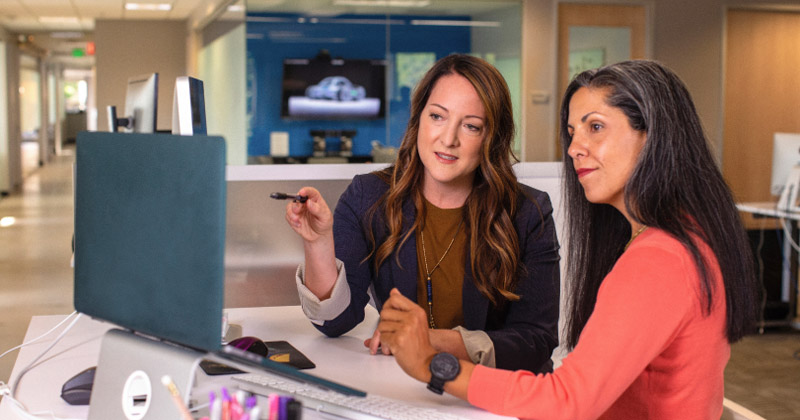
We have seen how an Intellectual Property Expert Witness plays a vital role in all walks of patent-related legal conflicts, trademark conflicts, copyright conflicts, trade secret disputes, and IP damage claims. Their knowledge, analytical ability, and evidence make it easier for courts and attorneys to understand complicated IP issues. From evaluating cases and conducting forensic investigations to providing expert reports and courtroom testimony, these professionals strengthen legal arguments and influence case outcomes. It is best to be careful while choosing the right IP expert witness.
FAQs
Intellectual Property Expert Witness
- What is Considered Intellectual Property?
Intellectual property (IP) refers to creations of the mind that are legally protected from unauthorized use. This includes patents, trademarks, copyrights, and trade secrets, which grant exclusive rights to their owners.
- How to Protect Intellectual Property?
IP may be safeguarded against legal registration and enforcement strategies like the registration and filing of patents for inventions, trademarks for trademarked names and logos, copyrights for literary, musical, or artistic works, and trade secret protections in the form of NDAs and security measures.
- What Do Intellectual Property Lawyers Do?
Intellectual property lawyers help people and companies to secure and defend their IP rights. They are responsible for filing and handling IP registrations (patents, trademarks, copyrights). They resolve IP conflicts and litigation in the event of infringement. They also prepare licensing agreements and contracts for the use of IP and consult clients on protecting their IP assets.
- What is Intellectual Property Infringement?
IP infringement occurs when someone copies, makes use of, or derives gain from another’s patented, copyrighted, trademarked, or trade-secreted item without explicit permission.
- How to Find an Expert Witness for an IP Case?
Finding a qualified IP expert witness involves working with an intellectual property law firm to get recommendations. Get in touch with intellectual property consulting firms that specialize in expert witness services. Evaluate the expert’s background, litigation experience, and technical expertise. You need to ensure that they pass the court standards for expert testimony under the Daubert or Frye rules.
Still have questions?
Please feel free to contact us regarding any questions about our services or how to access them.
We are happy to schedule a free consultation discussing your ORM needs.
"*" indicates required fields

